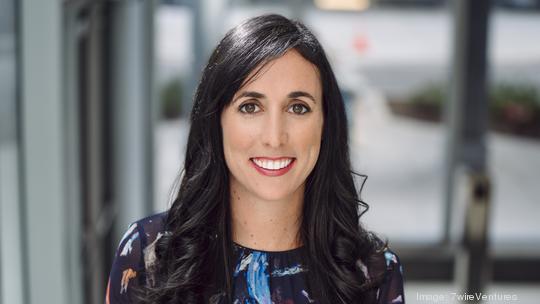When the pandemic began spreading in the U.S. in mid-March, panic struck the tech and startup industry, just like it did in many other sectors. The uncertainty of how long the pandemic would last, combined with the effect it would have on our collective health and economy, was worrying everyone.
Companies across the world were laying off workers, and Chicago’s tech economy was not immune to downsizing trends. Chicago Inno covered numerous layoffs from local companies, and many more likely happened that never reached the press.
During the early days of Covid-19, investors, CEOs and community leaders were predicting tech taking a big hit due to the effect it was having on the economy. Some thought venture capital dollars would disappear and startups that relied too heavily on investor support would be forced to shut down.
“We were all worried in April that the spigot would just dry up,” said Brad Henderson, the CEO of Chicago tech organization P33. “I was scared.”
While certain tech companies, like those operating in travel and dining industries, have suffered, many other areas of tech, including e-commerce, logistics and health care, have thrived this year.
“It was cruel the way coronavirus helped some and penalized others,” Henderson added.

Now that the year is just about over and a Covid-19 vaccine is reaching the arms of society’s most at-risk populations, Chicago’s tech entrepreneurs, investors and community stakeholders are preparing for a new year, where the possibilities are almost guaranteed to be more promising than they were in 2020.
Looking back on the year, Chicago investors that spoke to Inno for this story agreed that despite the many setbacks of 2020, the year also kickstarted a growth period for the local tech economy.
Many of the reasons why Chicago tech is poised to grow in 2021 are tied to the hyper-digitalization that 2020 forced upon nearly everyone. With completely remote work, the tech industry has developed new patterns for how everyday tasks, deals and networking gets done.
That digitized world has had a profound effect on how Chicago startups are raising venture capital. Because VCs were vetting startups digitally, as opposed to at in-person meetings, many coastal investors from Silicon Valley or New York were discovering and investing in heartland startups, Henderson said. The nature of remote investor meetings meant VCs were operating more on a meritocratic basis than on a geographic one.
“Zoom allowed investors on the coasts to find companies a lot more efficiently,” Henderson said.
He said Tovala, the Chicago-based maker of smart ovens, was one company that benefited from the “Zoom effect,” when it raised a $20 million Series B round led by Finistere Ventures, a Bay Area agtech-focused VC firm.
Amount, a Chicago fintech lending startup, also recently raised an $81 million Series C round led by New York-based Goldman Sachs Growth with participation from August Capital, Invus Opportunities and Hanaco Ventures.

While venture capital firms were still investing in startups throughout 2020, they were also juggling the worries and anxieties of their funds' limited partners. Jackie DiMonte, a principal at Hyde Park Venture Partners, said the firm's LPs were asking for more information about the wellbeing of the firm's portfolio companies and its future investments than ever before.
“That period of time was just high alert for everyone,” DiMonte said. “Certainly, we were communicating much more often officially with our LPs than we might on any one month or two.”
In addition to better access to investors, a Covid-induced digital world allowed for the experimentation of distributed and remote workforces, which has proved in some cases to work just fine.
“I think a distributed workforce ends up being a positive for Chicago,” said Alyssa Jaffee, a partner at 7WireVentures. “We’ve all learned that face time is not valued in the same way that it used to be.”
And regardless of where workers are located, the pandemic has caused many leaders to reexamine their leadership style, and be more compassionate and flexible with workers. Whether it’s giving employees time to recover from illness, take care of families or prioritize mental health, this new trend will hopefully stick, Jaffee said.
“Covid is hard personally for everybody,” she said. “We just kept getting calls [from founders] that said: ‘I’m worried about my people.’"

Despite some of the gains Chicago tech realized this year around fundraising and work flexibility, the local tech economy also missed out on many things in 2020, primarily when it came to in-person networking and events.
The Chicago Venture Summit, an annual two-day event that brings investors from around the globe to Chicago to learn more about the local startup scene, was canceled. And while many events were replaced with virtual versions, they weren’t the same. Founders, investors and tech workers were unable to participate in valuable networking that sometimes can only transpire from an organic introduction at an event or over drinks, said Mike Asem, a partner at M25.
“I do think that’s something we missed out on pretty significantly this year,” Asem said. “Every time there’s a summit—whether it’s [M25’s] summit or another event here in Chicago—Chicago grows as a result from each one of those because more and more people see the great companies being built here.”
Looking toward 2021, Asem recommends that founders focus on keeping their businesses lean and capital efficient. While there is positive news about vaccine distribution and the possibility that the virus will become manageable in 2021, there's a lot to still be wary of over the next six months.
“For companies that saw their business take a hit in 2020, I would not necessarily expect things to get a lot smoother in 2021,” Asem said. “There’s still a lot of uncertainty. A lot of those markets that have been really hit and disrupted, they’re not going to grow back the same as they were before.”

The other big issue companies in all sectors are facing is the staggering number of women leaving the workforce. According to data from the U.S. Department of Labor, women are leaving the workforce at four times the rate as men, mostly due to women taking on more responsibility at home during the pandemic.
“Women and people of color are disproportionately affected,” Jaffee said. “[It's important to] invest in resources that people need to be successful, and setting boundaries and expectations that work for everybody, and not just work for the White men.”
While prioritizing diversity and inclusion has always been important, it’s even more imperative now that companies do what they can to offset these Covid side effects, Jaffee said. Keeping women in the workforce and diversifying teams by race and background has to be a priority, too.
“All founders and all executives need to be thinking about how to support their employees outside of work through the remainder of the pandemic,” Asem said. “What we’re experiencing right now is an unprecedented level of uncertainty across humanity. And getting the most out of your people is really going to be tied to understanding and supporting your people.”



